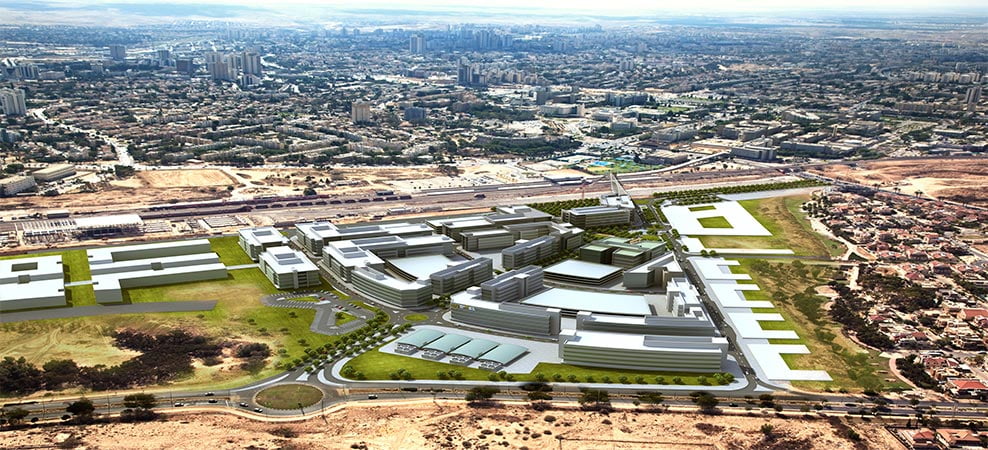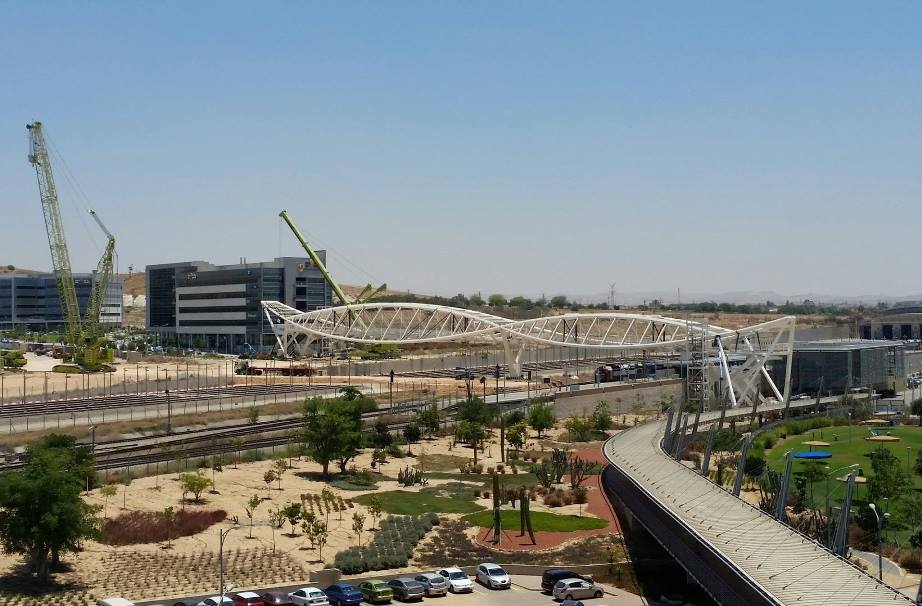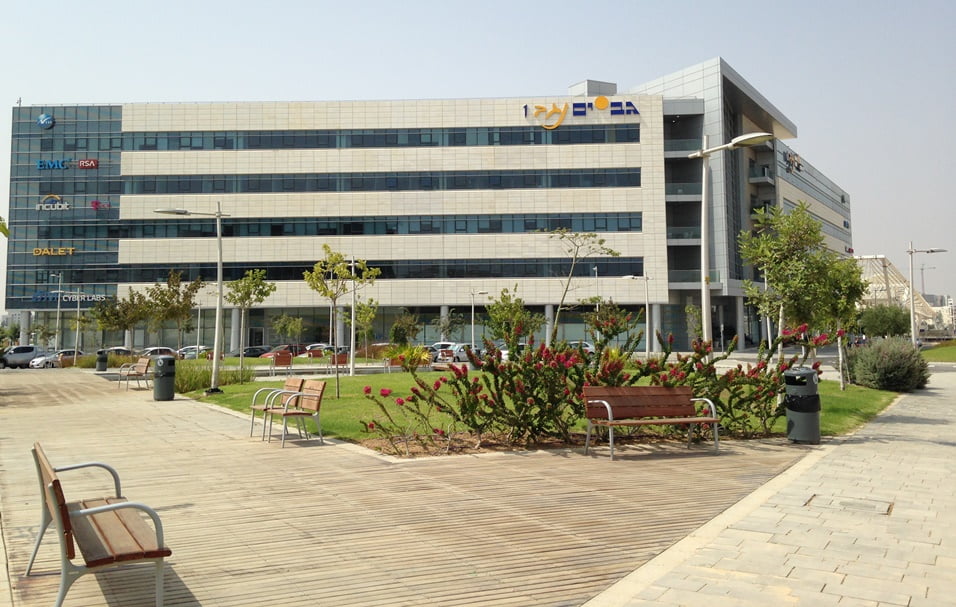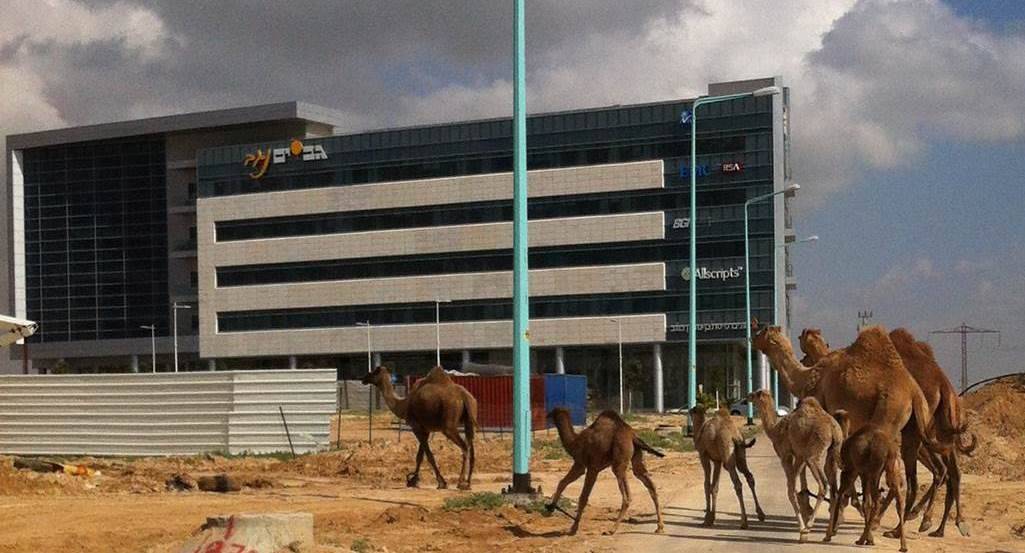Just four decades ago, a visit to the southern desert city of Beersheba in Israel would have shown a barren landscape, with mostly sand and camels in sight. In recent years, however, the city has been undergoing a near-miraculous transformation and is now gaining a new reputation for itself.
Those looking for an explanation need look no further than the $1 billion Gav-Yam Negev Advanced Technologies Park (ATP) – a massive joint project to revitalize the Negev Desert by making it an major hot spot in the rise of the Startup Nation. The project is a joint effort by the State of Israel, the Beersheba municipality, Ben-Gurion University and KUD International, a consortium of US and Japanese investors.
SEE ALSO: The 10 Hottest Israeli Startups
This unique office park, currently occupied by top-tier cyber-security and communication companies, will include some 20 buildings upon completion, making it one of the largest startup ecosystems in the country.
It’s no wonder foreign investors are looking to Beersheba for exciting new opportunities. Earlier this year, T3 Advisors and Brandeis’ International School singled out Beersheba as one of the seven “cities of tomorrow” that global companies should consider when planning their global expansion.
“Traditionally, the Negev has been considered the periphery of Israel, off the beaten track, but Israel’s first prime minister David Ben-Gurion always talked about the importance of the Negev and how it holds the key to Israel’s great future,” Faye Bittker, a spokeswoman for Ben-Gurion University, the top university located in Beersheba, tells NoCamels. “And with this project, we’re seeing that vision come to life.”
SEE ALSO: Cyber Security Nation
The new park is also home to Jerusalem Venture Partners’ Cyber Labs incubator, which has identified and supported several cyber-security startups since it launched in Beersheba last year, with already one successful exit: The acquisition of its portfolio startup CyActive by online payment giant PayPal for $60 million earlier this year.
1,300 employees – and growing
Roughly 1,300 people currently work at the 35 companies operating out of the park’s two buildings, and construction for the third high-rise building is well underway. Gav-Yam’s Roy Zwebner, the park’s general director, estimates that the construction of the park (15-20 buildings in total) will be completed in the next decade, opening up space for additional firms and labs, as well as Ben-Gurion University’s centers of excellence. Among the companies that recently opened offices in the park are such giants as Oracle, Deutsche Telekom and Mellanox.
Gilad Peleg, the CEO of SecBI – a JVP-funded startup that is creating a platform to investigate and mitigate security incidents for clients – shares what it’s like to work at the ATP. “When my father-in-law moved to Beersheba some 50 years ago, there was no infrastructure, nothing here,” he tells NoCamels. “Today, it’s like a different country. Now I can say that Beersheba is the cyber capital of Israel and soon the world. If you look outside, you see these huge names like Lockheed Martin and EMC here. This is becoming a high-tech hub where market leaders want to be.”
Sign up for our free weekly newsletter
SubscribeA new cyber ecosystem is born
It would be a stretch to claim that one high-tech park on its own could transform an entire city. And indeed, the tech park is just one piece, albeit a crucial one, in a larger cyber-conducive ecosystem.
Another huge player in the building of Israel’s “cyber capital” is the Israeli Defense Forces, which is moving its technology units out of the Tel Aviv area and into Beersheba. An estimated 20,000 soldiers will be relocated to the south by 2021, and technology and communications infrastructure as well as data and information centers will be built right next to Ben-Gurion University to accommodate the huge move.
The move is a cause for celebration for the firms and startups at the ATP that are interested in hiring the talented, tech-savvy, intelligence-unit soldiers upon discharge, and is grabbing the attention of other multinational investors who also want first dibs on the best cyber talent pool.
The third vital player in the ecosystem is Ben-Gurion University, which was established in 1969 as part of a national initiative to develop the Negev Desert region and is today leading the innovative research on software and cyber security.
BGU was on board from the start when talks for the ATP were first initiated, and is one of the main investors, holding a 22 percent stake in the project. “We’re hoping to repeat the success of Silicon Valley – where a university [Stanford] was the major facilitator of the valley’s revolution, generating industry and bringing in jobs –and we’re definitely on the right track with this partnership,” Bittker says. “The opportunities that the ATP has to offer will be a huge incentive for our graduates to stay in Southern Israel.”
Put together, all of these pieces make for an unprecedented ecosystem that is putting Beersheba at the forefront of the cyber field. “The ATP is offering high-profile jobs that pay just as well as those in the more central cities,” Zwebner says. “Beersheba is really becoming the place to be.”
“There is something special about the fact that this park is a growing entity, and that we are still shaping it together,” says Guy Moskowitz, the CEO and founder of CoroNet, a JVP-funded startup that develops software to detect if a mobile device is connecting to fake or malicious cellular/Wi-Fi networks.
Beersheba’s transformation from a barren land of sand and camels into a cyber-security powerhouse is a source of pride for ATP’s partners. “This project is a confluence of completely different organizations and interests trying to make something happen,” Bittker says. “We feel like we’re making a positive difference, and the economic impact of this park is already visible.”
Photos and video: Eunice Lim, Gav-Yam Negev Tech Park, Ben-Gurion University
Related posts

Editors’ & Readers’ Choice: 10 Favorite NoCamels Articles

Forward Facing: What Does The Future Hold For Israeli High-Tech?

Impact Innovation: Israeli Startups That Could Shape Our Future









Facebook comments